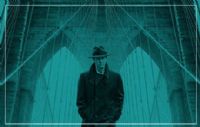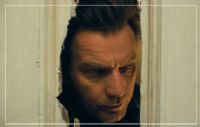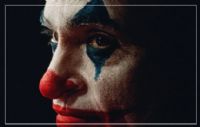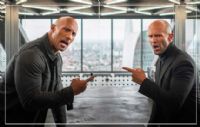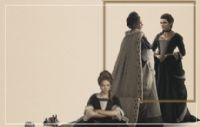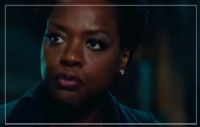REVIEW: Joker
Date: 30/10/2019
Movie Review
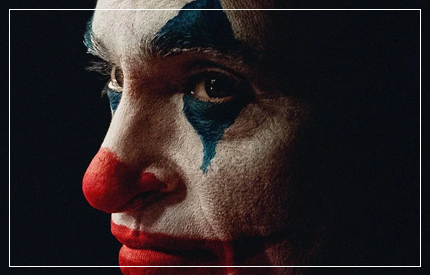
A character etched in cinematic history, the Joker has been redefined from performance to performance, with each iteration learning from the last. But in the Clown Prince of Crime's latest outing, The Hangover director Todd Phillips details and deconstructs Batman's famous nemesis in a way that has never been attempted before - without Batman himself.
Living on the outside of society but working right in the centre of it, Arthur Fleck plies his trade as a clown in Gotham City while taking care of his sickly mother. Through a succession of physical beat-downs, mental breakdowns, and revelations Arthur begins to don the makeup with more sinister intent.
Those inherently focused on comic book cinema may be surprised at how quiet the film opens - Arthur applying his clown makeup, forcing the corners of his mouth into a painful smile with his fingers, before the huge bold word JOKER hits the screen. Yet, in that brief exchange, director Phillips establishes the movie's tone - a tense, meditative atmosphere that feels close to breaking point at any single moment. You're either in or you're not.
And one man who was very much in is acting great Joaquin Phoenix, bringing both Arthur and the Joker to life with an equally quiet and bold performance. Phoenix's spine-tingling laugh, one caused by a brain disease, is uncomfortably rooted in pathos.
While the physicality of Phoenix is effectively compelling, the emotional resonance behind every body contortion and act of violence hinges on a performance that is unafraid to become ugly. It is this dichotomy of Arthur's horrific actions with the devastating things that happen to him that form the moral focus of the movie. Phillips plays this line with extreme caution, allowing the audience into the mind of Arthur without ever condoning the violent and homicidal things that come after.
Joker works as a harrowing tale of mental illness, but also plays as a cautionary story of a villain birthed by the toxic environment that surrounds him. Phillips seems to place blame on society's ignorance to mental health, while also condemning the traumatic things that Arthur both suffers and then subsequently inflicts.
Yet it is Arthur Fleck's notebook, littered with failed attempts at comedy, which delivers the most self-aware and effectively sorrowful message.
"The worst part of having a mental illness is people expect you to behave as if you don't."
As well as producing an acute observation on society's approach to mental health, Arthur perfectly sums up the movie in one. Joker does not behave like the rest of the comic book genre, an approach which challenges the audience to understand its lead character.
The movie's perspective allows us an insight into Arthur's twisted reality, one, while incredibly problematic, seems to be the only thing keeping him from chaotic madness.
"Is it just me, or is it getting crazier out there?," Arthur queries. Gotham City, much like Arthur, is on the verge of erupting into mayhem - the disparity of a huge class divide causing palpable tension.
Cinematographer Lawrence Cher breathes life into this version of Gotham City, essentially Scorsese's New York on steroids, with intimate handheld camera work, creating an even starker contrast between Arthur's darkly dank apartment and the opulent gates of Wayne Manor.
Cher manufactures an uncomfortable fly-on-the-wall aesthetic, as if he himself is scared of the things going on in front of the camera. One particular scene involving Phoenix and a fridge comes immediately to mind.
It is in this uncomfortable nature that Joker finds its voice, establishing a overflowing tension that builds to a thrilling finale.
A shallow outlook on some of the material's more serious topics, along with a slight overkill of 70s tunes fail to deliver the right punchline. And yet, this does not hold Joker back.
Audiences may not be entirely ready for this movie. Joker is unflinching at its best, featuring great supporting turns from Robert de Niro, Zazie Beetz and Frances Conroy drowned out by a career-defining performance from Phoenix.
Joker is the beginning of Warner Bros' foray into more singular DC Comics stories, a statement of intent of what it is to come. The day of cinematic universes and multi-character crossovers feels like a distant memory, and Joker is all the better for it.
Conor Murray
Living on the outside of society but working right in the centre of it, Arthur Fleck plies his trade as a clown in Gotham City while taking care of his sickly mother. Through a succession of physical beat-downs, mental breakdowns, and revelations Arthur begins to don the makeup with more sinister intent.
Those inherently focused on comic book cinema may be surprised at how quiet the film opens - Arthur applying his clown makeup, forcing the corners of his mouth into a painful smile with his fingers, before the huge bold word JOKER hits the screen. Yet, in that brief exchange, director Phillips establishes the movie's tone - a tense, meditative atmosphere that feels close to breaking point at any single moment. You're either in or you're not.
And one man who was very much in is acting great Joaquin Phoenix, bringing both Arthur and the Joker to life with an equally quiet and bold performance. Phoenix's spine-tingling laugh, one caused by a brain disease, is uncomfortably rooted in pathos.
While the physicality of Phoenix is effectively compelling, the emotional resonance behind every body contortion and act of violence hinges on a performance that is unafraid to become ugly. It is this dichotomy of Arthur's horrific actions with the devastating things that happen to him that form the moral focus of the movie. Phillips plays this line with extreme caution, allowing the audience into the mind of Arthur without ever condoning the violent and homicidal things that come after.
Joker works as a harrowing tale of mental illness, but also plays as a cautionary story of a villain birthed by the toxic environment that surrounds him. Phillips seems to place blame on society's ignorance to mental health, while also condemning the traumatic things that Arthur both suffers and then subsequently inflicts.
Yet it is Arthur Fleck's notebook, littered with failed attempts at comedy, which delivers the most self-aware and effectively sorrowful message.
"The worst part of having a mental illness is people expect you to behave as if you don't."
As well as producing an acute observation on society's approach to mental health, Arthur perfectly sums up the movie in one. Joker does not behave like the rest of the comic book genre, an approach which challenges the audience to understand its lead character.
The movie's perspective allows us an insight into Arthur's twisted reality, one, while incredibly problematic, seems to be the only thing keeping him from chaotic madness.
"Is it just me, or is it getting crazier out there?," Arthur queries. Gotham City, much like Arthur, is on the verge of erupting into mayhem - the disparity of a huge class divide causing palpable tension.
Cinematographer Lawrence Cher breathes life into this version of Gotham City, essentially Scorsese's New York on steroids, with intimate handheld camera work, creating an even starker contrast between Arthur's darkly dank apartment and the opulent gates of Wayne Manor.
Cher manufactures an uncomfortable fly-on-the-wall aesthetic, as if he himself is scared of the things going on in front of the camera. One particular scene involving Phoenix and a fridge comes immediately to mind.
It is in this uncomfortable nature that Joker finds its voice, establishing a overflowing tension that builds to a thrilling finale.
A shallow outlook on some of the material's more serious topics, along with a slight overkill of 70s tunes fail to deliver the right punchline. And yet, this does not hold Joker back.
Audiences may not be entirely ready for this movie. Joker is unflinching at its best, featuring great supporting turns from Robert de Niro, Zazie Beetz and Frances Conroy drowned out by a career-defining performance from Phoenix.
Joker is the beginning of Warner Bros' foray into more singular DC Comics stories, a statement of intent of what it is to come. The day of cinematic universes and multi-character crossovers feels like a distant memory, and Joker is all the better for it.
Conor Murray




























